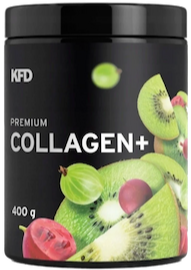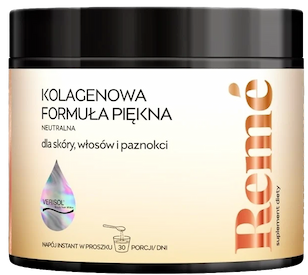Collagen deficiency symptoms - signs in the body, nails, and skin
Brittle hair and nails. Joint pains and injuries. These are just some of the symptoms of collagen deficiency.


Learn more about our editorial process
.

Learn more about our editorial process
.

Learn more about our editorial process
.

Learn more about our editorial process
.
Why you can trust us
Articles on Natu.Care are written based on scientific research, data from government websites and other reliable sources. The texts are written in cooperation with doctors, nutritionists and other health and beauty experts. Articles are reviewed before publication and during significant updates.
.Learn more about our editorial process
.Information about advertisements
Content on Natu.Care may contain links to products from the sale of which we may receive a commission. When creating content, we adhere to high editorial standards and take care to be objective about the products discussed. The presence of affiliate links is not dictated by our partners, and we select the products we review ourselves completely independently.
.Learn more about our terms and Conditions
.As Dr Witold Tomaszewski, M.D., points out, when we mean 'collagen deficiency', what we really mean is a disruption in the synthesis of the protein of youth, and poorer collagen synthesis is typical of ageing. Sometimes, however, the deterioration of these processes can be faster and worse than physiological norms suggest. This is when action should be taken.
Symptoms of so-called collagen deficiency can occur as early as 25 years of age. From a medical point of view, this is normal ... but such a verdict is not comforting. After all, you don't want to be looking in the mirror counting wrinkles, worrying about every hair left on your comb, or giving up on physical activity in the hope of avoiding injury that way.
From this article you will learn:
If you suspect you have a collagen deficiency, consider collagen supplementation. Check out the products Rise&Shine and CacaoBloom, which will help your skin gain a youthful glow.
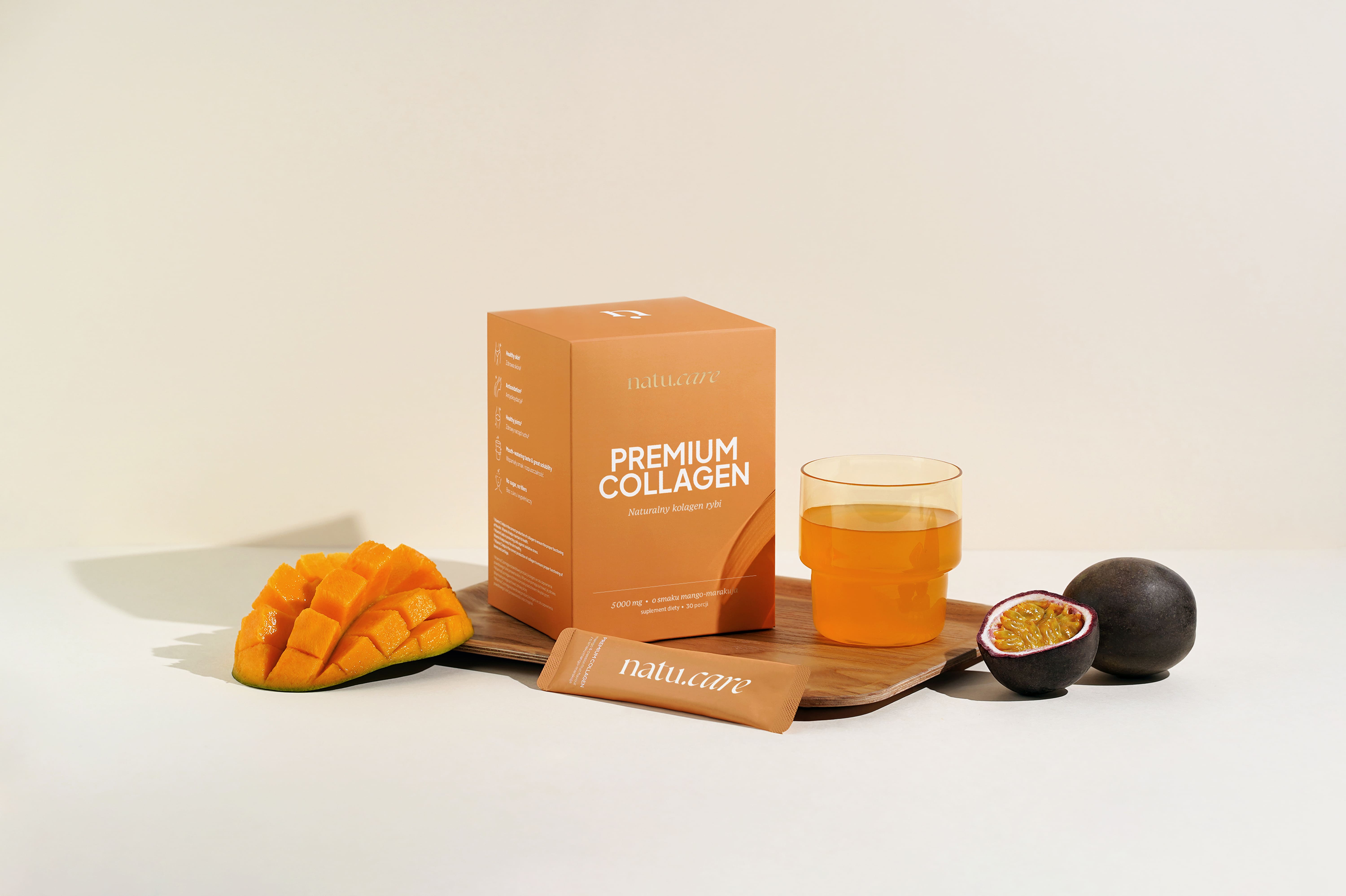
Sprawdź, za co pokochały go tysiące klientek Kolagen Premium 5000 mg, mango-marakuja
Natu.Care Kolagen Premium 5000 mg, mango-marakuja
Natu.Care Kolagen Premium dla zdrowia stawów, skóry, paznokci i włosów. Najlepsza przyswajalność. Optymalna dawka 5 000 lub 10 000 mg. Przebadany przez niezależne laboratorium.
Zobacz więcej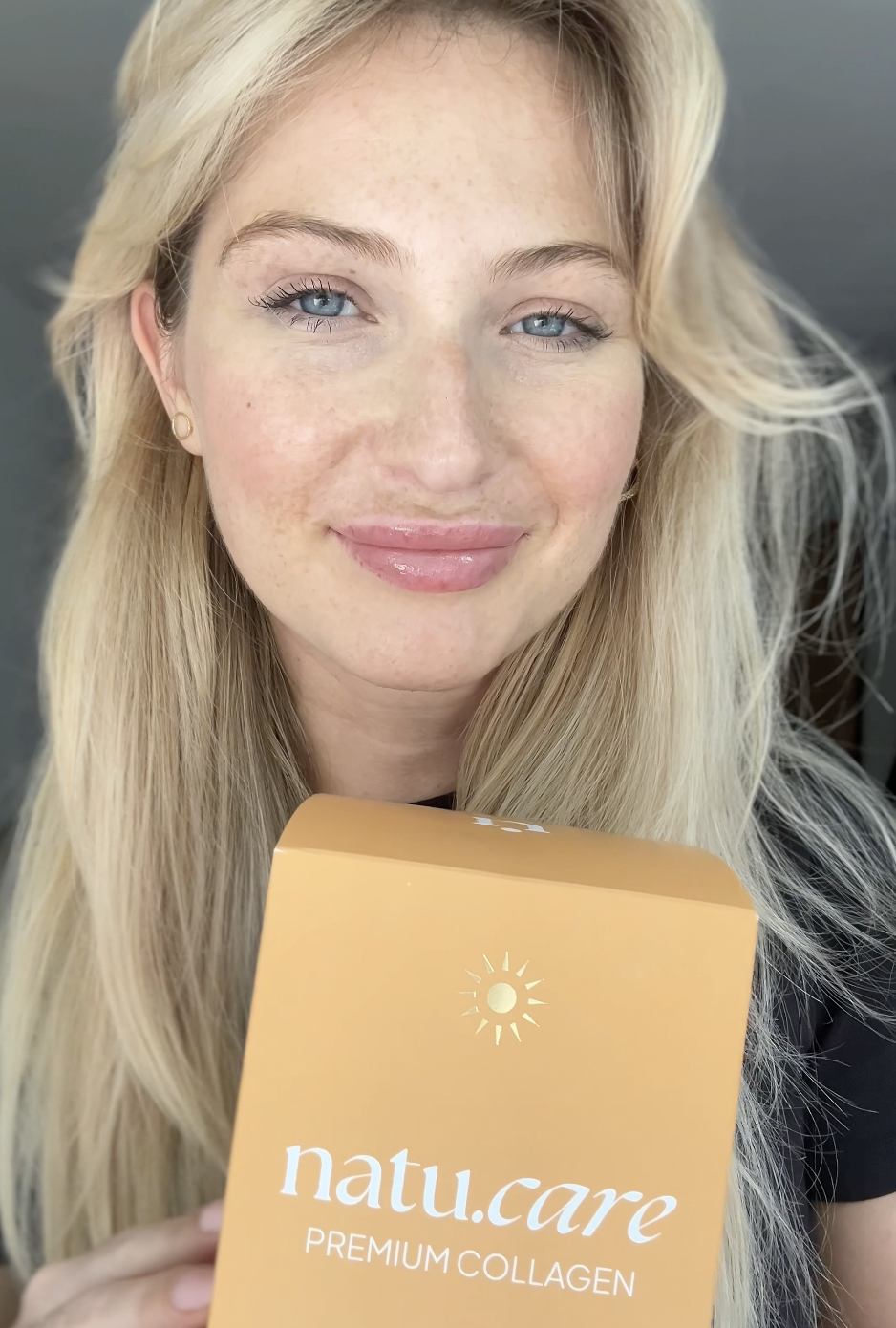
Wybrałam kolagen Natu.Care, ponieważ miał super opinie – a to było dla mnie bardzo ważne! Odkąd go stosuję, moja skóra znacznie się poprawiła i jest nawilżona, a na głowie pojawiły się nowe "baby hair".@Kasia S.
See also:
- The most powerful collagen
- The best collagen to drink and collagen to drink (effects)
- Best collagen for joints
- Best collagen for tendons
- Best collagen for hair
- Best collagen for face
- Best collagen for wrinkles
The causes of collagen deficiency in the body
Most often this problem is caused by ageing. Our body starts to lose about 1.5% of collagen per year after the age of 25.
The main causes of collagen deficiency are:
- age,
- too much sunand,
- extreme temperatures,
- too little exercise ,
- environmental pollution,
- lack of sleep ,
- excessive stress and illness,
- alcohol abuse ,
- smoking ,
- inadequate hydration,
- inadequate diet,
- deficiencies in vitamins and minerals,
- deficiency of dietary collagen in meals,
Aging won't stop, but we can take care of our general hygiene in life. Take time to be physically active, ensure a balanced diet and hydration. Normalise your sleep and limit stimulants. Don't be afraid of sunny days, make the most of them (but don't try to make up for a whole year in the summer).
Collagen deficiency occurs faster in women than in men. This has its origin in estrogen disorders. Hormonal problems negatively affect collagen synthesis. Therefore, I recommend that women take care of correct hormone levels, ovulation, menstruation, have their hormones checked regularly (TSH, oestradiol, progesterone, LH and FSH) and see a gynaecologist frequently.

Julia SkrajdaDietitian
Want to know which youth protein deserves special attention?
Envite you to my article on the most powerful collagen!
Collagen deficiency symptoms
Symptoms of collagen deficiency include facial wrinkles around the eyes, brittle nails and limp hair, pain in joints, tendons, muscles and ligaments, as well as injuries and slower recovery. Lack of collagen in the body also means indigestion, fatigue and even cardiovascular problems.
There are no typical symptoms and no single way to diagnose.
According to Ilona Krzak, we should pay particular attention to:
Deterioration of the skin
Loss of elasticity, firmness or dulling of the skinand are some of the first symptoms of collagen deficiency. Did you know that your skin is made up of around 70-80 per cent of collagen? Therefore, its deficiency leads to its damage. Over time, the symptom of a deficiency will also be the increasing appearance of wrinkles.
Want to know how collagen affects the complexion?
Envite you to my article on collagen for the face!
Hair and nail breakage
Collagen consists of three amino acidsand: proline, glycine, hydroxyproline. Proline has a positive effect on the health of hair and nails. When it is lacking in the body - hair and nails suffer. Collagen deficiency leads to their brittleness and general deterioration.
See also:
Muscle pain
Collagen is the building block of ligaments and tendonsand. Its deficiency leads to muscle pain. Occasionally, swelling or inflammation can also occur. In such cases, it is necessary to consult a specialist.
Reduced immunity
Collagen deficiency can result in reduced immunity. The youth protein plays an important role in the immune systemand. It protects us from bacteria and toxins. Its deficiency makes us more vulnerable to infections.
Collagen problems
Collagen is the building block of blood vessels. Its deficiency leads to circulation problemsand. The result is an increase in blood pressure, the occurrence of blood clots and, consequently, blockages in the vessels, which can manifest as dizziness.
Prolonged recovery
Collagen deficiency means that it can be more difficult to recover fully from an injuryand. During the healing of an injury, our body uses all of its collagen resources. If we do not then provide the body with adequate amounts of this protein, recovery will be prolonged.
Diseases of the intestines
Symptoms of collagen deficiency also include gastrointestinal problems. The protein of youth is the building block of the intestinal walls, and when it is lacking, leaky gut syndromeand.
Appetite disorders
Collagen peptides stimulate the satiety centreand. A symptom of collagen deficiency can be a reduction in appetite. This leads to a reduction in body fat , which can be dangerous in the long term - resulting in excessive weight loss.
Collagen deficiency in joints - symptoms
Lack of collagen in the joints causes the cartilage to rub against each other. The result is stiffness in the jointsand, tendons and ligaments. Moving becomes more difficult because collagen promotes the production of synovial fluid that reduces friction, for example in the knees . Long-term deficiency leads to, for example, osteoarthritis.
Bone fragility
Collagen has an impact on the human skeletal systemand. A symptom of its deficiency is secondary bone decalcification (which can lead to increased bone fragility). It does not stop there, if collagen deficiency is not supplemented in time, osteoporosis or bone pain can occur.
Joint diseases
Many people believe that joint pain is directly linked to the ageing process. However, this problem may be a symptom of a collagen deficiency. A deficiency of the youth protein can lead to osteoarthritis or secondarily even osteoporosis .
Are you still missing information about how youth protein works for your joints?
See articles:
Collagen deficiency supplements
Natu.Care Collagen Premium 5000 mg, mango-maracuja

- Collagen content: 5000 mg marine collagen hydrolysate
- .
- Additional active ingredients: vitamin C, low molecular weight hyaluronic acid (and L-theanine and coenzyme Q10 in cocoa flavoured collagen or vitamin A and vitamin E in mango–passion fruit flavoured collagen)
- .
- Form: powder sachets
- .
- Dose: 1 sachet per day
- .
- Sufficient for: 30 days
- .
Product description
Fish collagen from the Natu.Care brand in a dose of 5000 mg. The formula contains a sufficient portion of the active substance to positively affect your joints, musculoskeletal system and immunity.
Take care of your tendons, joint cartilage, ligaments, muscles and even bones by supplying them with the building blocks to function properly. Move without bólu and provide the necessary support for any physical activity.
And as a „gratis” to regular supplementation, you will also receive firm skinóhand, healthy and shiny hair and strong nails.
Natu.Care Premium Collagen is available in two flavours – Cacao Bloom and Rise&Shine. Both formulas are based on the following active ingredients: marine collagen hydrolysate, wild roseóbud extract and hyaluronic acid.
Additionally, Cacao Bloom contains natural L-theanine, coenzyme Q10 and defatted Dutch cacao. Rise&Shine instead contains vitamin E and vitamin A.
These are the best collagens in the world.
These best fish collagens on the market also rós taste – Cacao Bloom is a treat for chocolate lovers. Rise&Shine will appeal to those whoóenjoy the refreshing taste of mangoófruit and passion fruit.
Pros and cons
Fish collagen from the Natu.Care brand in a dose of 5000 mg. The formula contains a sufficient portion of the active substance to positively affect your joints, musculoskeletal system and immunity.
Take care of your tendons, joint cartilage, ligaments, muscles and even bones by supplying them with the building blocks to function properly. Move without bólu and provide the necessary support for any physical activity.
And as a „gratis” to regular supplementation, you will also receive firm skinóhand, healthy and shiny hair and strong nails.
Natu.Care Premium Collagen is available in two flavours – Cacao Bloom and Rise&Shine. Both formulas are based on the following active ingredients: marine collagen hydrolysate, wild roseóbud extract and hyaluronic acid.
Additionally, Cacao Bloom contains natural L-theanine, coenzyme Q10 and defatted Dutch cacao. Rise&Shine instead contains vitamin E and vitamin A.
These are the best collagens in the world.
These best fish collagens on the market also rós taste – Cacao Bloom is a treat for chocolate lovers. Rise&Shine will appeal to those whoóenjoy the refreshing taste of mangoófruit and passion fruit.
Additional information
Fish collagen from the Natu.Care brand in a dose of 5000 mg. The formula contains a sufficient portion of the active substance to positively affect your joints, musculoskeletal system and immunity.
Take care of your tendons, joint cartilage, ligaments, muscles and even bones by supplying them with the building blocks to function properly. Move without bólu and provide the necessary support for any physical activity.
And as a „gratis” to regular supplementation, you will also receive firm skinóhand, healthy and shiny hair and strong nails.
Natu.Care Premium Collagen is available in two flavours – Cacao Bloom and Rise&Shine. Both formulas are based on the following active ingredients: marine collagen hydrolysate, wild roseóbud extract and hyaluronic acid.
Additionally, Cacao Bloom contains natural L-theanine, coenzyme Q10 and defatted Dutch cacao. Rise&Shine instead contains vitamin E and vitamin A.
These are the best collagens in the world.
These best fish collagens on the market also rós taste – Cacao Bloom is a treat for chocolate lovers. Rise&Shine will appeal to those whoóenjoy the refreshing taste of mangoófruit and passion fruit.
User review
Fish collagen from the Natu.Care brand in a dose of 5000 mg. The formula contains a sufficient portion of the active substance to positively affect your joints, musculoskeletal system and immunity.
Take care of your tendons, joint cartilage, ligaments, muscles and even bones by supplying them with the building blocks to function properly. Move without bólu and provide the necessary support for any physical activity.
And as a „gratis” to regular supplementation, you will also receive firm skinóhand, healthy and shiny hair and strong nails.
Natu.Care Premium Collagen is available in two flavours – Cacao Bloom and Rise&Shine. Both formulas are based on the following active ingredients: marine collagen hydrolysate, wild roseóbud extract and hyaluronic acid.
Additionally, Cacao Bloom contains natural L-theanine, coenzyme Q10 and defatted Dutch cacao. Rise&Shine instead contains vitamin E and vitamin A.
These are the best collagens in the world.
These best fish collagens on the market also rós taste – Cacao Bloom is a treat for chocolate lovers. Rise&Shine will appeal to those whoóenjoy the refreshing taste of mangoófruit and passion fruit.
Natu.Care Collagen Premium 10000 mg, cherry

- Collagen content: 10,000 mg of hydrolyzed bovine collagen
- Additional active ingredients: vitamin C, low molecular weight hyaluronic acid, glucosamine, chondroitin, extract of Indian frankincense resin (boswellia serrata)
- Form: powder sachets for drinking
- Serving: 1 sachet per day
- Lasts for: 30 days
Product description
One of the strongest collagens on the market, providing as much as 10,000 mg per daily serving. This product can effectively support the condition of joints, skin, hair, and nails.
With this supplement, you will support your skeletal and joint system as well as your beauty, helping you visually halt the aging process and feel rejuvenated!
Pros and cons
Pros:
- The daily portion of collagen is very large – as much as 10,000 mg.
- Proven collagen formula – COLLinstant, whose effectiveness has been confirmed in clinical studies.
- Effective dose of hyaluronic acid, which additionally moisturizes the skin and positively affects joint health.
- Vitamin C supports the body's natural collagen production.
- Glucosamine is a fundamental building block of compounds found in joint cartilage and a component of collagen that gives elasticity to connective tissue in tendons.
- Chondroitin is a natural component found in the human body, mainly in cartilage. This large molecule (mucopolysaccharide) has the ability to absorb water, which helps maintain the elasticity and resilience of cartilage.
- Frankincense resin extract supports blood circulation and joint mobility and reduces their stiffness. It may help alleviate inflammatory conditions.
- The composition has been tested by the independent and accredited J.S. Hamilton laboratory.
Cons:
- None.
Additional information
Users praise Natu.Care Collagen Premium for the easy dissolving of the powder.
ALLDEYNN Collarose Fish
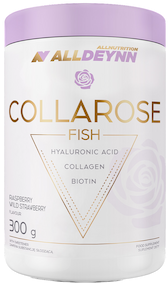
- Collagen content: 5000 mg hydrolysate fish collagen VERISOL F® .
- Additional active ingredients: vitamin C, hyaluronic acid, biotin
- Form: powder to dissolve in water .
- Dose: one scoop (6 g) of powder daily .
- Sufficient for: 50 days .
Product description
Atlantic cod collagen VERISOL F® contained in the formula are easily absorbed collagen peptides of fish origin. Regular supplementation can firm your skinóhand and slow down the ageing process. Your nails will become stronger and stop breaking. The addition of biotin will improve the condition of your hairów. The collagen portion is high enough to also have a good effect on your joints, muscles and bones.
Pros and cons
Atlantic cod collagen VERISOL F® contained in the formula are easily absorbed collagen peptides of fish origin. Regular supplementation can firm your skinóhand and slow down the ageing process. Your nails will become stronger and stop breaking. The addition of biotin will improve the condition of your hairów. The collagen portion is high enough to also have a good effect on your joints, muscles and bones.
Additional information
Atlantic cod collagen VERISOL F® contained in the formula are easily absorbed collagen peptides of fish origin. Regular supplementation can firm your skinóhand and slow down the ageing process. Your nails will become stronger and stop breaking. The addition of biotin will improve the condition of your hairów. The collagen portion is high enough to also have a good effect on your joints, muscles and bones.
Expert and user opinion
Atlantic cod collagen VERISOL F® contained in the formula are easily absorbed collagen peptides of fish origin. Regular supplementation can firm your skinóhand and slow down the ageing process. Your nails will become stronger and stop breaking. The addition of biotin will improve the condition of your hairów. The collagen portion is high enough to also have a good effect on your joints, muscles and bones.
DuoLife Collagen fish collagen 2500 mg
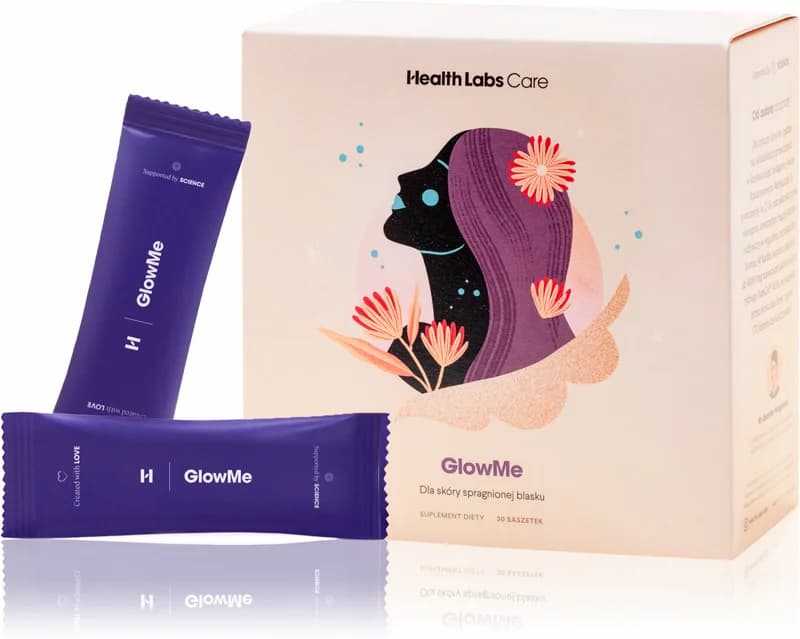
- Collagen content: 2500 mg collagen
- Additional active ingredients: vitamin C, silicon, glucosamine, hyaluronic acid, nettle and bamboo extracts
- Form: liquid to drink .
- Dose:25 ml .
- Sufficient for: 30 days .
Product description
100% natural collagen liquid without unnecessary ingredientsós. The composition of ingredientsós improves the appearance and condition of skinóry, hairów, nails. DuoLife is a good choiceór if you notice the first signs of skinóry ageing or want to stop this process. A tasty liquid, convenient to use.
Pros and cons
100% natural collagen liquid without unnecessary ingredientsós. The composition of ingredientsós improves the appearance and condition of skinóry, hairów, nails. DuoLife is a good choiceór if you notice the first signs of skinóry ageing or want to stop this process. A tasty liquid, convenient to use.
Additional information
100% natural collagen liquid without unnecessary ingredientsós. The composition of ingredientsós improves the appearance and condition of skinóry, hairów, nails. DuoLife is a good choiceór if you notice the first signs of skinóry ageing or want to stop this process. A tasty liquid, convenient to use.
User review
100% natural collagen liquid without unnecessary ingredientsós. The composition of ingredientsós improves the appearance and condition of skinóry, hairów, nails. DuoLife is a good choiceór if you notice the first signs of skinóry ageing or want to stop this process. A tasty liquid, convenient to use.
Pharmovit liquid collagen 10000 mg
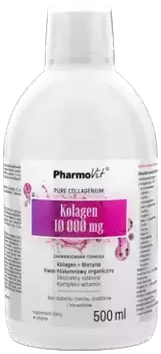
- Collagen content: 10000 mg hydrolysed bovine collagen types I and III .
- Additional active ingredients: hyaluronic acid, natural plant extracts, vitamin C, B vitamins, zinc, vitamin D
- Form: vials .
- Dose: 25 ml .
- Sufficient for: 20 days .
Product description
A solid daily dose of collagen for jointómuscle and bone health and beauty. The duo of collagen and vitamin C has a positive effect on each other, so that „the protein of youth” is better absorbed and more efficiently produced in the body.
Pros and cons
A solid daily dose of collagen for jointómuscle and bone health and beauty. The duo of collagen and vitamin C has a positive effect on each other, so that „the protein of youth” is better absorbed and more efficiently produced in the body.
Additional information
A solid daily dose of collagen for jointómuscle and bone health and beauty. The duo of collagen and vitamin C has a positive effect on each other, so that „the protein of youth” is better absorbed and more efficiently produced in the body.
KFD Premium Collagen+
Product description
High dose of collagen and a real bomb of vitamins C and D and organic sulphur. With this preparation the effects will come immediately. You will improve the firmness of your skin and reduce wrinkles. Your hair and nails will be strong and shiny.
A generous dose of collagen will improve the mobility of your jointsós, benefit your bone system and muscles. Do you do sports and need a product thatós able to keep up with your needs? This product will do the trick.
Pros and cons
High dose of collagen and a real bomb of vitamins C and D and organic sulphur. With this preparation the effects will come immediately. You will improve the firmness of your skin and reduce wrinkles. Your hair and nails will be strong and shiny.
A generous dose of collagen will improve the mobility of your jointsós, benefit your bone system and muscles. Do you do sports and need a product thatós able to keep up with your needs? This product will do the trick.
Additional information
High dose of collagen and a real bomb of vitamins C and D and organic sulphur. With this preparation the effects will come immediately. You will improve the firmness of your skin and reduce wrinkles. Your hair and nails will be strong and shiny.
A generous dose of collagen will improve the mobility of your jointsós, benefit your bone system and muscles. Do you do sports and need a product thatós able to keep up with your needs? This product will do the trick.
Expert opinion
High dose of collagen and a real bomb of vitamins C and D and organic sulphur. With this preparation the effects will come immediately. You will improve the firmness of your skin and reduce wrinkles. Your hair and nails will be strong and shiny.
A generous dose of collagen will improve the mobility of your jointsós, benefit your bone system and muscles. Do you do sports and need a product thatós able to keep up with your needs? This product will do the trick.
Product description
The dietary supplement from Remé contains beef collagen in a patented formula and vitamin C, whichóra aids its absorption. The formula comes in three flavours: neutral, orange-maracuja and strawberry-pomegranate. The formula can effectively support and improve the condition of the skinóry, hairóry and nails.
Pros and cons
The dietary supplement from Remé contains beef collagen in a patented formula and vitamin C, whichóra aids its absorption. The formula comes in three flavours: neutral, orange-maracuja and strawberry-pomegranate. The formula can effectively support and improve the condition of the skinóry, hairóry and nails.
Additional information
The dietary supplement from Remé contains beef collagen in a patented formula and vitamin C, whichóra aids its absorption. The formula comes in three flavours: neutral, orange-maracuja and strawberry-pomegranate. The formula can effectively support and improve the condition of the skinóry, hairóry and nails.
The dietary supplement from Remé contains beef collagen in a patented formula and vitamin C, whichóra aids its absorption. The formula comes in three flavours: neutral, orange-maracuja and strawberry-pomegranate. The formula can effectively support and improve the condition of the skinóry, hairóry and nails.
{ product:1eiyihgASLfslgpBv80Tk1 }}
{ product:3A6Dp6540L63Y3msHqwQCz }}
{ product:5fckersx4K9mJxAxV0rRJO }}
See also:
- Which collagen to choose
- The best absorbable collagen
- Drinking collagen
- Liquid collagen
- Collagen in sachets
- Collagen in tablets
- Collagen powder
- Lyophilized collagen
- Collagen hydrolysate
- Collagen fibers
How to find collagen deficiency?
Most commonly, collagen deficiency can be diagnosed by the above symptoms. At the moment, there is no test that allows us to check the collagen concentration in the body.
You can pre-assess the condition of your skin, review your diet and see what destroys collagen in the body to better counteract such factors.
How to make up for collagen deficiency?
We can supplement collagen deficiency with a balanced diet rich in cartilage- and skin-based foods. Foods that are particularly high in 'youth protein' are chicken feet, fish with skin, gelatine-based jellies.
Collagen deficiency is supplemented with collagen-rich products such as:
- cicken feet,
- chicken with skin,
- broth on pork, beef, chicken bones,
- meat and fish jellies,
- salcessón and the like,
- fish with skin,
- goat,
- offal,
Don't forget foods that support collagen production such as eggs, legumes, shellfish or soya. It's also a good idea to eat plenty of vegetables and fruit - especially those that are rich invitamin C.
As you can see, some foods rich in collagen are quite distinctive - there are a lot of meat products that are not always to the taste of even carnivores (offal, cartilage, skins, jellies, seafood). If you don't like such dishes, go ahead and choose a dietary supplement.
Effective and safe formulations contain between 2.5 and 15 gramsand of collagen peptides.
Reach out for Natu.Care collagen:
- high quality and content of collagen peptides (5000 mg),
- additional active ingredients,
- excellent mango-maracuja or cocoa flavour,
- tested composition,

Sprawdź, za co pokochały go tysiące klientek Kolagen Premium 5000 mg, mango-marakuja
Natu.Care Kolagen Premium 5000 mg, mango-marakuja
Natu.Care Kolagen Premium dla zdrowia stawów, skóry, paznokci i włosów. Najlepsza przyswajalność. Optymalna dawka 5 000 lub 10 000 mg. Przebadany przez niezależne laboratorium.
Zobacz więcej
Wybrałam kolagen Natu.Care, ponieważ miał super opinie – a to było dla mnie bardzo ważne! Odkąd go stosuję, moja skóra znacznie się poprawiła i jest nawilżona, a na głowie pojawiły się nowe "baby hair".@Kasia S.
See also:
- Collagen (properties, types, dosage)
- Best collagen
- Marine collagen and fish collagen
- How to supplement collagen
- What destroys collagen in the body
- Collagen type 1, type 2, type 3
- Collagen excess
- Collagen medication
- Collagen for skin
- Collagen for women
- Collagen for nails
- Collagen for cellulite
- Collagen supplementation
- Collagen for hair, skin and nails
Summary
Remember:
- Collagen deficiency progresses with age.
- Collagen deficiency is a major contributor to the body's health.
- Alcohol and cigarette abuse leads to depletion of collagen.
- Intensive lifestyle results in collagen deficiency.
- Dermal problems are the main symptom of collagen deficiency.
FAQ
What kills collagen in the body?
The main reason for collagen deficiency is simply age - ageing hinders the synthesis of this protein. It is also negatively affected by:
- UV radiation,
- too hot or cold temperatures,
- environmental pollutants,
- toxins, diseases, stress,
A suboptimal diet is also a problem:
- consumption of a lot of smoked, grilled, baked or fried food (this leads to the development of free radicals),
- deficiency of vitamins and minerals,
- deficiencies of collagen itself in the diet,
Note also:
- smoking cigarettes,
- abuse of coffee,
- inadequate hydration,
The above factors destroy collagen in the body. You can improve your body's collagen levels with a diet rich in animal products such as jellies, broths and fish. The most convenient and fastest way is with collagen supplementation, such as collagen 5000 mg Natu.Care, Colladrop Flex, collagen Sundose, or Colladrop Forte.
How to make up for collagen deficiency.
Collagen deficiency (from collagen) is supplemented with a balanced diet rich in cartilage- and skin-based products. Foods that are particularly high in 'youth protein' include chicken feet, fish with skin or gelatine-based jellies.
Foods in which you will find collagen include:
- cicken feet,
- chicken with skin,
- broth on pork, beef, chicken bones,
- meat and fish jellies,
- salcessón,
- fish with skin,
- goat,
- offal,
Don't forget foods that support collagen production such as eggs, legumes, shellfish or soya. It's also a good idea to eat plenty of vegetables and fruit - especially those that are rich invitamin C.
As you can see, some foods rich in collagen are quite distinctive - there are a lot of meat products that are not always to the taste of even carnivores (offal, cartilage, skins, jellies, seafood). If you don't like such dishes, go ahead and choose a dietary supplement such as collagen 5000 mg Natu.Care.
.
Who should take collagen?
Everyone can take collagen. If you are starting to experience the first symptoms of deficiency, and this can happen as early as 20-25 years of age, then collagen supplementation should be particularly considered.
Symptoms that indicate you should be taking collagen:
- deterioration of the skin,
- pain in muscles and joints,
- worse condition of hair and nails,
- decreased immunity,
- decreased immune function,
- decreased immune function
- prolonged convalescence after illness,
- disorders of appetite.
- disorders of appetite,
Remember that prevention is better than cure, so start using collagen even before you experience the first symptoms of deficiency. The most powerful collagens are: Natu.Care's collagen 5000 mg, Colladrop Flex, Collagen Sundose, or Colladrop Forte.
Is it worth supplementing with collagen?
Yes, it is worth supplementing collagen. The protein of youth can effectively support the condition of hair, skin, nails, joints and also strengthen our immunity. At the same time, it very rarely causes side effects, so experts consider it safe.
Remember that already at the age of 20-30 our body produces too little collagen. Therefore, bet on the best collagen for your face and hair and ensure your long youth. Here are some of them: collagen 5000 mg by Natu.Care, Colladrop Flex, collagen Sundose, or Colladrop Forte.
How to choose a good collagen product.
Many collagen products can be found on the market, but only a few are worth considering.
.
To choose a good collagen, pay attention to:
- Collagen content. The most effective formulations contain 2.5-15 grams of the youth protein.
- Collagen.
- Composition. It should be free of fillers and preservatives, and contain vitamins and minerals (especially vitamin C).
- Form.
- Form. Collagen supplements in cream don't work on the dermis (you can find out more about this in the article on facial collagen and wrinkles), so it's worth opting for powdered, drinkable and tablets.
- Testing. Some manufacturers test their products in accredited and independent laboratories.
If you don't know how to choose good collagen, check out these products: collagen 5000 mg Natu.Care, Colladrop Flex, collagen Sundose, or Colladrop Forte.
How to take collagen?
Collagen should be taken as recommended by the manufacturer, pharmacist or doctor. Never exceed the recommended dose. You should also drink collagen systematically, as we may only see the first effects after 8-24 weeks of regular supplementation. It does not matter whether you take collagen in the morning or in the evening.
What are the contraindications to collagen supplementation?
Collagen is the most basic, building block protein found naturally in the body, so there are few contraindications to its supplementation. Some of these include an allergy to fish or seafood (in the case of fish collagen). Pregnant and breastfeeding women should also be cautious. If you are allergic to an ingredient in a particular product, do not take it.
Sources
See all
Chiang, T.-I., Chang, I.-C., Lee, H.-H., Hsieh, K. hui, Chiu, Y.-W., Lai, T.-J., Liu, J.-Y., Hsu, L.-S., & Kao, S.-H. (2016). Amelioration of estrogen deficiency-induced obesity by collagen hydrolysate. International Journal of Medical Sciences, 13(11), 853-857. https://doi.org/10.7150/ijms.16706
Kahan, V., Andersen, M. L., Tomimori, J., & Tufik, S. (2009). Stress, immunity and skin collagen integrity: Evidence from animal models and clinical conditions. Brain, Behavior, and Immunity, 23(8), 1089-1095. https://doi.org/10.1016/j.bbi.2009.06.002
Kinashi, Y., & Hase, K. (2021). Partners in Leaky Gut Syndrome: Intestinal Dysbiosis and Autoimmunity. Frontiers in Immunology, 12. https://www.frontiersin.org/articles/10.3389/fimmu.2021.673708
Larsen, T. M., Dalskov, S.-M., van Baak, M., Jebb, S. A., Papadaki, A., Pfeiffer, A. F. H., Martinez, J. A., Handjieva-Darlenska, T., Kunešová, M., Pihlsgård, M., Stender, S., Holst, C., Saris, W. H. M., & Astrup, A. (2010). Diets with High or Low Protein Content and Glycemic Index for Weight-Loss Maintenance. New England Journal of Medicine, 363(22), 2102-2113. https://doi.org/10.1056/NEJMoa1007137
Moskowitz, R. W. (2000). Role of collagen hydrolysate in bone and joint disease. Seminars in Arthritis and Rheumatism, 30(2), 87-99. https://doi.org/10.1053/sarh.2000.9622
Paul, C., Leser, S., & Oesser, S. (2019). Significant Amounts of Functional Collagen Peptides Can Be Incorporated in the Diet While Maintaining Indispensable Amino Acid Balance. Nutrients, 11(5), 1079. https://doi.org/10.3390/nu11051079
Tzaphlidou, M. (2008). Bone Architecture: Collagen Structure and Calcium/Phosphorus Maps. Journal of Biological Physics, 34(1-2), 39-49. https://doi.org/10.1007/s10867-008-9115-y
Warrington, K. J., Nair, U., Carbone, L. D., Kang, A. H., & Postlethwaite, A. E. (2006). Characterisation of the immune response to type I collagen in scleroderma. Arthritis Research & Therapy, 8(4), R136. https://doi.org/10.1186/ar2025
Yang, F.-C., Zhang, Y., & Rheinstädter, M. C. (2014). The structure of people's hair. PeerJ, 2, e619. https://doi.org/10.7717/peerj.619
Jelonek, L. (2023). Collagen. Everything you need to know (B. Turczynski, ed.; 1st ed.). Natu.Care. https://books.google.com/books?vid=9788396887801
Editorials
Meet the team


Editor
Graduate of Journalism and Artes Liberales at the University of Warsaw. Since 2017, he has been working with the biggest portals in Poland and abroad as an editor. Previously worked for 3 years in one of the leading pharmaceutical companies - he knows the health and beauty industry inside out. In his free time, he most enjoys playing tennis or skiing.
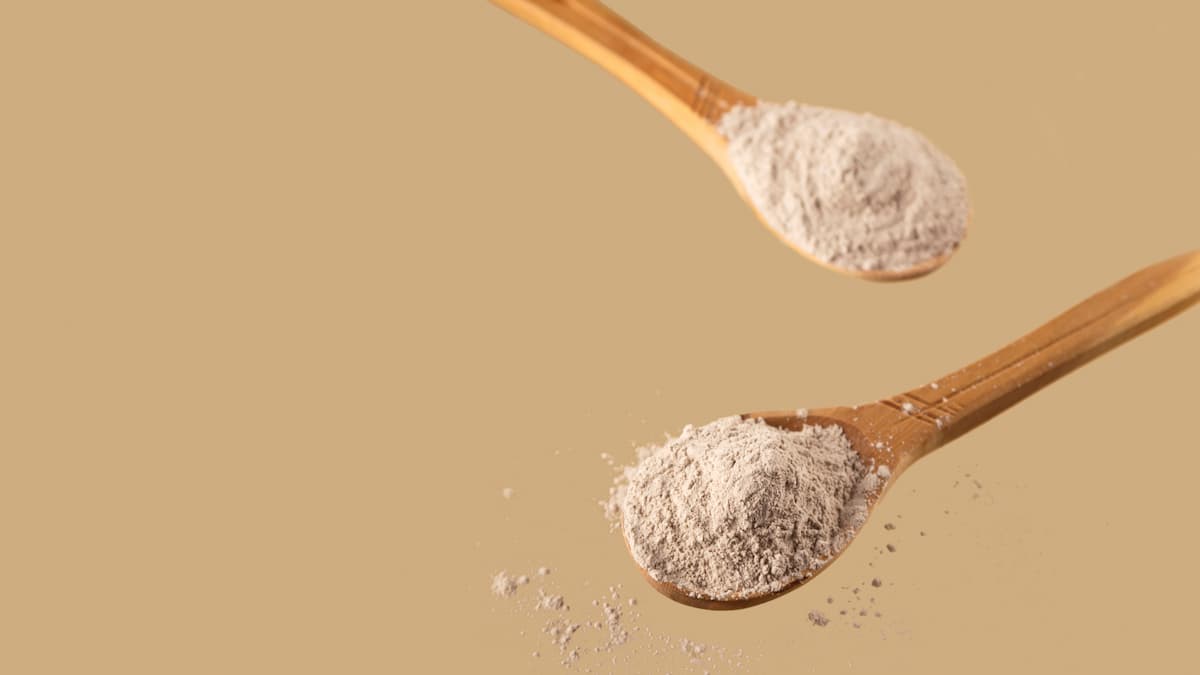
Everything you want to know about COLLinstant collagen.

Collibre collagen is an interesting supplement in shot form.
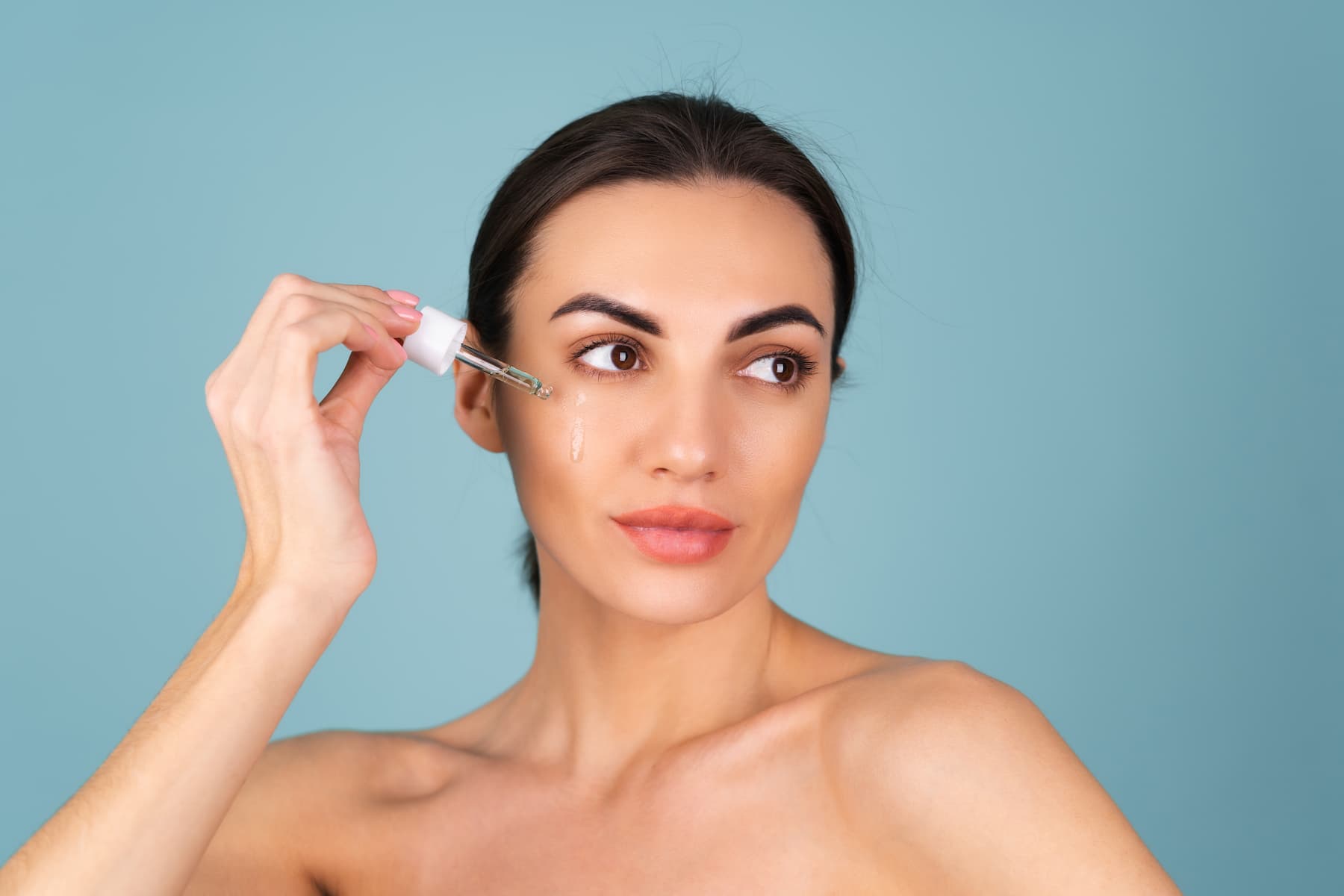
Solgar collagen with hyaluronic acid is a dietary supplement that supports skin and joint health.
